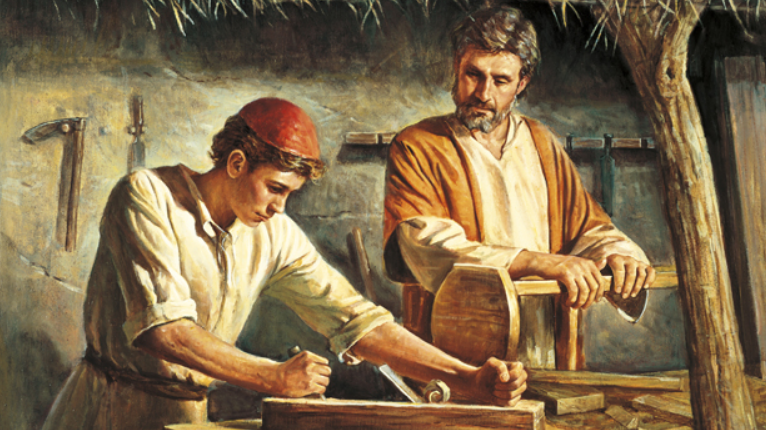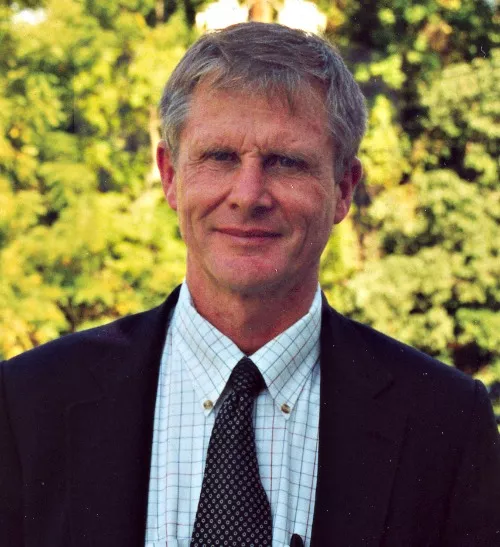A Reflection on Fatherhood
On March 21st, 2008 Thomas S. Vander Woude jumped into the septic tank on his family’s farm to save his son. His son, Joseph Vander Woude, an 20-year-old with down syndrome fell through the family farm’s septic tank cover. As his son struggled, Thomas held his son’s head over the sewage for 15 minutes. Upon rescue, medics pronounced the father dead when they arrived, and his son miraculously had no ill-effects from ingesting sewage. This is an incredible example of the sacrifice and responsibility fatherhood requires. It is extremely valuable to understand how a father’s sacrifice is essential to a child’s flourishment. Fatherhood is ever-important today since we live in a nation where 21% of children lack a father in the home and the role of the father is increasingly instrumental.
What is Fatherhood?
Some sources describe fatherhood as “the state of actively educating, protecting, and providing for one’s children.”(1) Many suggest that fatherhood is essential for society’s social and economic vitality. Fathers and mothers execute an indispensable role in securing a “family wage” through work that is mutually beneficial to children’s upbringing in the home. Others indicate that fathers must keep in mind the family’s financial sustainment and child rearing. Multiple public and private organizations have recently launched research, content, and coaching for the next generation of fathers, such as the National Responsible Clearing House, the National Center for Fathering, and Super Dad – a tv show where dads do fun projects for their children.
Upon reviewing the breadth of virtues, it is my understanding that fatherhood can be broken to two core tenants – sacrifice and responsibility. It requires sacrifice of oneself for the family, and responsibility to realize the never-ending amount of time that his wife, children, and work need from him. It demands a total “self-giving” because children require a holistic education that is most fruitful with the mother and father’s involvement. Education, as defined by being a fruitful member of a family, community, and larger society, not strictly academic. Pope Saint John Paul II said, “By exercising its mission to educate, the family contributes to the common good and constitutes the first school of social virtue, which all societies need.”(2) I think it is challenging to establish what the family’s vision is for the children. Here, the law of gradualness is helpful, but harsh! To me, it demonstrates that fatherhood is lifelong – and eternal. Big sacrifices are not enough–fatherhood requires routine, consistent “self-giving up” to the family. Saint Theresa of Calcutta said of the sacrificial father – “love to be real, it must cost-it must be real-it must empty us of self”.
My father has worked as a civil engineer for a state department of transportation for over 35 years (and counting!). In most cases, state and government work provide a modest “family wage”. In his younger years as an engineer, private companies attempted to poach him from the government sector for much more lucrative private sector jobs. Certainly, my father would have made more money in any of these jobs, but he would have simultaneously had to give up time with his family to take such a position, as it would have required travel and more time away from the home. In the end, as I somewhat gave away, he chose not to pursue these alternative career paths, and I am ever grateful for it. The time he spent with our family, growing our faith, and providing us with a sound education were critical in the creation of a loving and supportive environment. His selfless decisions were always evident, like when he supported our ‘goals’ by literally building us a soccer net, reading us The Pilgrim’s Progress and other books I remember fondly that instilled virtue in our young minds, and organizing contributions to the less fortunate within and outside of our community. I will never forget the sacrifices my father made. In honor of Fathers’ Day, we should take some amount of time today to reflect on how we can learn from fathers and father figures within our own lives. My father’s example serves as the yardstick against which I measure others leaders. My fellow Thought to Action contributor, Beau Wasson, feels the same way about his own late father.
Fatherlessness: A Societal Plight
Pope Saint John Paul the II once said, ”In revealing and in reliving on earth the very fatherhood of God, a man is called upon to ensure the harmonious and united development of all the members of the family.” Sometimes fathers may not fulfill this calling. President Obama, in his Fathers Day speech in 2008 indicated the consequences “but if we are honest with ourselves, we’ll admit that what too many fathers also are is missing — missing from too many lives and too many homes. They have abandoned their responsibilities, acting like boys instead of men. And the foundations of our families are weaker because of it”.
A depth and breadth of research demonstrates fatherlessness is dangerous, correlated to many socioeconomic risk factors, and likely to have a causal relationship in some others. Without analyzing these too deeply, it appears children need their fathers because there are many dangers that aim to infiltrate children.(3) Peer pressure, prestige and popularity, pervasiveness of media and technology, and the pursuit of pleasure all aim to strip children’s dignity and it appears to only grow more dangerous as time progresses.(4) Victor Hugo said in Les Miserables of the three greatest problems of this world “the atrophy of the child by darkness” and to me, this indicates how important a father’s protection is. Sometimes, a father’s responsibility is to deny a teenager from having an iPhone. Other times, it may require a father not being able to go on his monthly golf trip. In one way, fathers exercise responsibility to protect, in the other, fathers sacrifice personal time. In both cases, it’s vital for the wellbeing of children.
“The parents’ love, placing itself at the service of children to draw forth from them the best that is in them, finds its fullest expression precisely in the task of educating. “as well as being a source, the parents’ love is also the animating principle and therefore the norm inspiring and guiding all concrete educational activity, enriching it with the values of kindness, constancy, goodness, service, disinterestedness and self-sacrifice that are the most precious fruit of love”
John Paull II, Apostolic Exhortation Familiaris Consortio, 36: AAS74 (1982), 127.
As a personal example, my wife and I love reading books to our children, but at the end of the day when we are trying to get them to bed and we are exhausted, all we want to do is make the routine as efficient as possible and get them to sleep. Once our children are asleep, my wife and I spend the remainder of the evening together. But like many children, we love to push our patience to the limits, asking us to read “just one more book”. As much as it hurts, we have to give up our personal time for the wellbeing of our children.
Call to Action
It is likely that fathers should be in the home, protect children from these influences, and be actively present as children mature. Even though many narratives desire to pull fathers out of the home, fathers must realize this pull effect and prioritize their commitments as a father. This is hard, because the two are not neatly aligned and there are many times when other commitments may weigh heavy. But fathers may remind themselves that their familial obligations are essential for their children’s success. As I reflect on what fatherhood means to me and my family, I am reminded that I could always improve in these areas. In our human nature we fall short. We must stay focused, have strong role models, and remind ourselves of our priorities.
As fathers, we can look forward to the future in how we can protect and defend our children. We can remind ourselves of the positive fatherhood influences in our lives or look to stories like Thomas Vander Woude and others for inspiration. To all the fathers out there, Happy Father’s Day!
About the Author:
Evan Bruccoleri is an active duty Army Infantry officer serving as a Joint Chiefs of Staff Intern at the Pentagon.
* The opinions expressed here are those of the author and do not represent those of the Army, the Department of Defense, or any part of the U.S. government.
(1) Bonagura, David G. J. “Catholic Fatherhood.” https://www.thecatholicthing.org/2011/06/19/catholic-fatherhood/ (accessed May 20th, 2022).
(2) Pope John Paul II, Apostolic Exhortation Familiaris Consortio, 37, 4: AAS 74 (1982), 127-129
(3) Schadt, David. “The Fathers of St. Joseph.” https://fathersofstjoseph.org/your-childs-six-enemies/ (accessed May 20th, 2022).
(4) Ibid.

